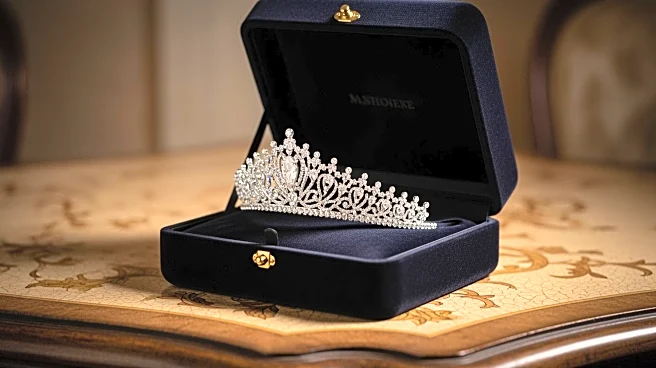What's Happening?
Following a high-profile jewel heist at the Louvre Museum, director Laurence des Cars has acknowledged a 'terrible failure' in security measures. The theft involved eight pieces from France's Crown Jewels,
valued at over $100 million, and has put President Emmanuel Macron and Culture Minister Rachida Dati under scrutiny. The heist occurred despite previous warnings from employees about understaffing and inadequate resources for protection. Des Cars testified to the French Senate, admitting weaknesses in the museum's security system, including insufficient camera coverage and outdated equipment.
Why It's Important?
The theft has significant implications for France's cultural heritage, as the stolen jewels are of historical importance. The incident has exposed vulnerabilities in the security of one of the world's most visited museums, prompting discussions about the need for improved security measures. It also highlights the challenges faced by cultural institutions in balancing visitor access with the protection of valuable artifacts. The event has led to public embarrassment and calls for accountability from government officials.
What's Next?
In response to the heist, new security measures are being implemented at the Louvre, including a command post and expanded camera grid. Investigations are ongoing, with 100 investigators working to identify the thieves and recover the stolen items. The museum's director has offered to resign, but the offer was refused, indicating a commitment to addressing the security shortcomings. The incident may lead to broader discussions about security protocols at cultural institutions worldwide.
Beyond the Headlines
The heist raises ethical questions about the protection of cultural heritage and the responsibilities of institutions to safeguard historical artifacts. It also underscores the importance of investing in modern security technologies to prevent similar incidents in the future. The event may influence security policies at other museums and cultural sites globally, prompting a reevaluation of current practices.








